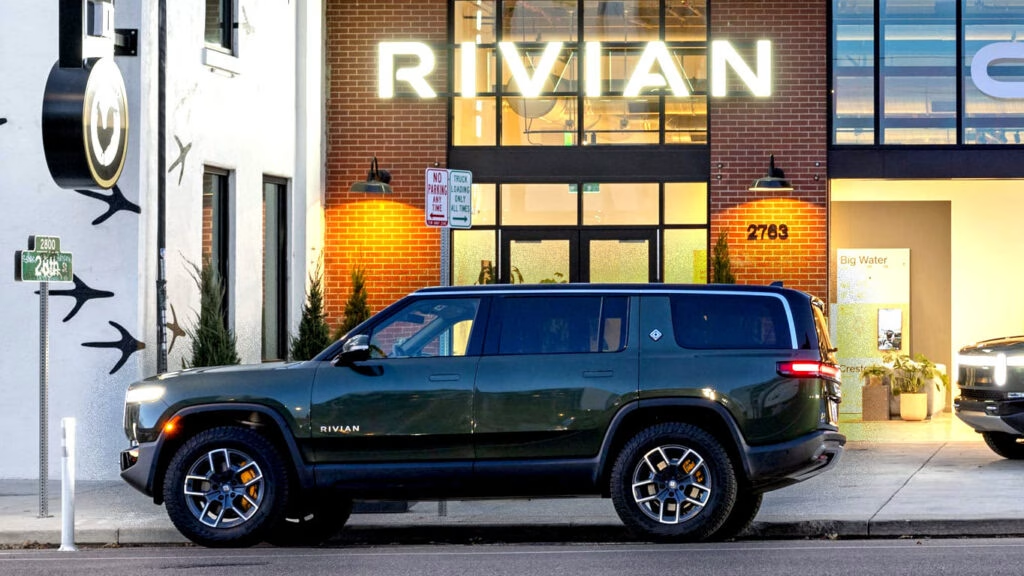Why Are Rivian Owners Being Offered Cash to Waive Legal Rights?
Imagine picking up your brand new Rivian R1S, the electric SUV you’ve been waiting months—maybe years—for. You’re excited, proud, and ready to hit the road. But then, less than two weeks in, the air conditioner fails. Suddenly, your dream car is stuck in the shop for weeks, and you’re left in the dark with little to no updates. That’s exactly what happened to one Rivian owner, and their experience has sparked a bigger conversation: why are Rivian customers being offered cash to sign away certain legal rights?
What’s Actually in These “Goodwill” Agreements?
After a dozen or so frustrated inquiries, the owner finally got a response from Rivian. The company offered $2,000 as a “goodwill” gesture—but there was a catch. In exchange for the cash, the owner would have to sign a document waiving their right to sue Rivian for breach of warranty, state lemon laws, or under the federal Magnuson-Moss Warranty Act, at least for issues up to that point.
This isn’t just a one-off. Several other Rivian owners have reported receiving similar offers, with some even consulting lawyers to make sure they weren’t giving up future rights. The consensus? These agreements typically only cover issues up to the date of signing, not problems that might crop up later.
Is This Normal in the Auto Industry?
Offering cash settlements in exchange for waiving legal claims isn’t unheard of in the car world, but it’s not exactly standard practice for most automakers—especially not for relatively new brands trying to build trust. According to the Federal Trade Commission, the Magnuson-Moss Warranty Act is designed to protect consumers from unfair warranty practices, and state lemon laws add another layer of protection for buyers of defective vehicles.
By offering cash for a waiver, Rivian is essentially trying to limit its exposure to expensive buybacks or lawsuits. For the company, a few thousand dollars per unhappy customer is a small price to pay compared to the potential legal costs and reputational damage. For owners, it’s a quick way to get some compensation without the hassle of a court battle. But it does raise questions about accountability and transparency—especially for a company that’s still working to prove itself in a crowded EV market.
What Should Owners Consider Before Signing?
If you’re a Rivian owner (or any car owner, really) faced with a similar offer, it’s important to read the fine print and understand exactly what rights you’re giving up. Consulting a consumer protection attorney can help clarify the implications. While the agreement may only cover past issues, you don’t want to accidentally waive your ability to seek recourse for future problems.
Also, consider the broader context. According to J.D. Power’s 2024 Initial Quality Study, new EVs tend to have more quality issues than their gas-powered counterparts, with software and hardware glitches topping the list. Rivian, as a newer automaker, is still ironing out the kinks. That means owners may be more likely to encounter problems—and more likely to be offered settlements like these.
Are Other Owners Experiencing the Same Thing?
Absolutely. In online forums and social media groups, Rivian owners have shared similar stories. Some accepted the cash and moved on, while others held out for better solutions or pushed for buybacks under lemon laws. One owner even reported that their lawyer confirmed the waiver only applied to past issues, not future ones—a small but important distinction.
The bigger picture? These offers reflect a tension between customer satisfaction and corporate risk management. Rivian wants to keep customers happy (or at least quiet) without opening itself up to costly litigation. For owners, it’s a balancing act: take the money and move on, or hold out for a more permanent fix.
What Does This Mean for the Future of EV Ownership?
As more people make the switch to electric vehicles, stories like these are likely to become more common. New technology means new challenges, and not every automaker is equally prepared to handle them. The good news? Consumer protections like the Magnuson-Moss Warranty Act and state lemon laws are there for a reason. They give buyers leverage when things go wrong.
The big takeaway? Navigating EV ownership isn’t about perfection—it’s about smarter adjustments. Start with one change this week—maybe reading your warranty a little closer or joining an owner’s forum—and you’ll likely spot the difference by month’s end.

